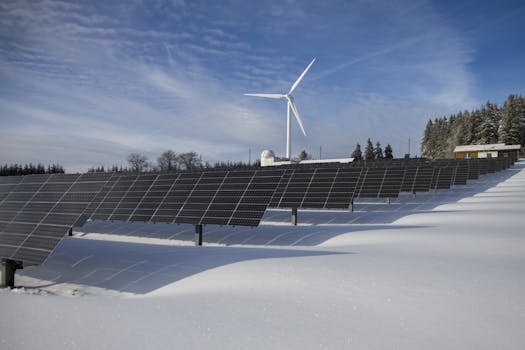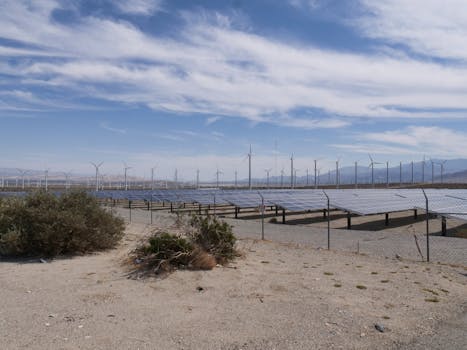
Introduction

Breakthroughs in renewable energy technology are reshaping the way we approach sustainability. As we face the challenges of climate change and dwindling natural resources, innovative solutions are emerging to harness power from renewable sources such as solar, wind, and hydro. This article delves into recent advancements in renewable energy technology and their implications for sustainable development.
Solar Energy Innovations

Solar energy has seen remarkable advancements over recent years. New materials and technologies have improved the efficiency of solar panels significantly. For instance, perovskite solar cells have emerged as a game-changer, boasting efficiencies over 25% while being cheaper to produce compared to traditional silicon cells. These advancements not only lower costs but also make solar energy more accessible to a broader range of consumers.
Wind Power Developments

Wind energy technology has also progressed, with larger and more efficient turbines being developed. Offshore wind farms are becoming increasingly popular, as they can harness stronger and more consistent winds. Technologies such as floating wind turbines allow for installations in deeper waters, expanding the potential for wind energy generation. These innovations are crucial in achieving sustainable energy goals and reducing reliance on fossil fuels.
Energy Storage Solutions

Energy storage is another critical area where breakthroughs are taking place. As renewable energy sources are intermittent, effective storage solutions are essential for maintaining a stable energy supply. Advances in battery technology, such as lithium-sulfur and solid-state batteries, promise higher capacities and longer lifespans. Furthermore, innovative energy management systems are being developed to optimize the use of stored energy, enhancing overall efficiency.
Hydrogen Fuel and Bioenergy

Hydrogen fuel is gaining traction as a clean energy alternative. Breakthroughs in electrolysis technology have made the production of green hydrogen more efficient and cost-effective. When produced using renewable energy sources, hydrogen can serve as a zero-emission fuel for various applications, including transportation and heavy industry. Additionally, bioenergy technologies are evolving, with advancements in converting waste into energy, contributing to a circular economy.
Conclusion

The breakthroughs in renewable energy technology are not only transforming the energy landscape but also paving the way for a sustainable future. These innovations underscore the importance of investing in renewable energy solutions to combat climate change and promote environmental stewardship. As we continue to embrace and develop these technologies, the path toward a greener, more sustainable world becomes increasingly attainable.






